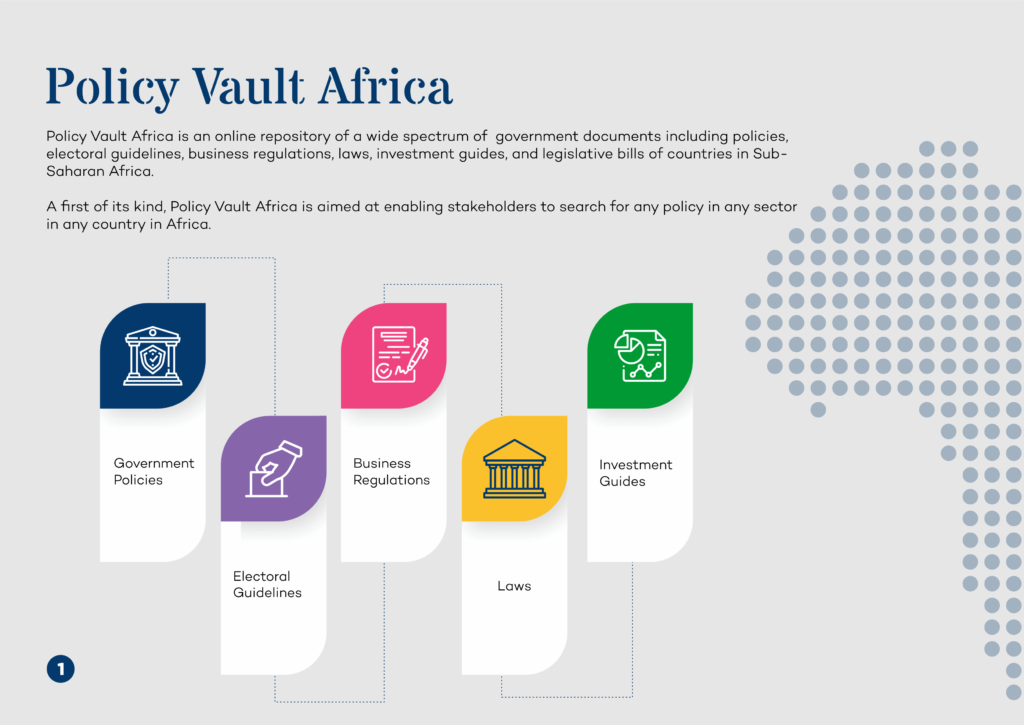As a leader on a policy reform project I worked on in Africa a few years back, I learned many things, writes Adeola Akinremi, Director of Strategic Communications at Policy Vault Africa:
First, finding policies of African national governments in the open is like looking for a needle in a haystack. This puts a strain on interventions and investments by Africa’s global partners. Non-profits seeking to work on policy reform, and companies seeking to enter Africa as a foreign market, will need to find existing policies to develop campaigns and make investment decisions.
Second, campaigns targeting multiple sectors in most African countries still struggle to rally stakeholders behind a common goal because policymakers often do not see how policy from one department is extrinsically linked to the other. This hurts collaboration and collective impact.
Policy Vault Africa aims to address these challenges. Ridwan Sorunke, of Johns Hopkins University’s School of Advanced International Studies, was struggling with access to policies related to a project in Africa when he decided to create a policy bank to remove those barriers, he writes for the World Bank:
There are more institutions that demonstrate the interconnectedness of our work in Africa – in research, policy, advocacy and development. That list includes the Bill and Melinda Gates Foundation, ONE Campaign, National Endowment for Democracy, International Republican Institute and several research universities, including the Johns Hopkins University’s School of Advanced International Studies.
Check out ‘Democracy in Central and Southern Africa: The Road Ahead’ Conference, held on 4 and 5 September 2019 in Cape Town, South Africa (above). Hosted by the Kofi Annan Foundation and Nelson Mandela School of Public Governance, including the Role of Civil Society in Democratic Governance: Potential for Collaboration.








